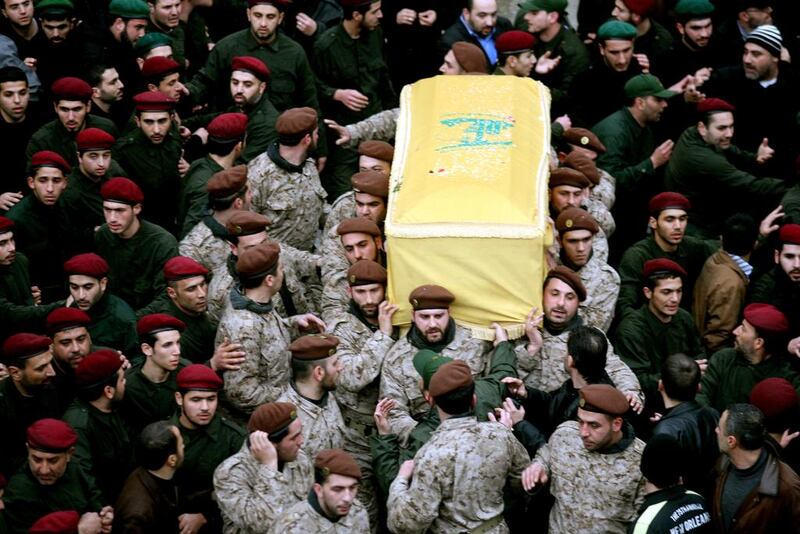An interesting development has taken place at Iran’s foreign ministry in recent days. In a shake-up of posts, foreign minister Mohammad Javad Zarif named Hossein Jabiri Ansari to take over as deputy foreign minister for Arab and African affairs.
Mr Ansari replaced Hussein Amir Abdel Lahyan, who is considered close to the Revolutionary Guards and had oversight of Syrian and Lebanese affairs. Arab press reports described the new deputy foreign minister as a “friend” of the Arab states.
The appointment was interpreted as an attempt by Mr Zarif to gain control of relations with the Arab world, at a time when these have reached an all-time low, amid sectarian conflict from Lebanon to Iraq to Yemen.
While the move will hardly eliminate the Revolutionary Guards from the equation, it could add flexibility to relationships otherwise fraught with tension.
If that is indeed the result, it would not be bad for Iran. The Islamic Republic’s ties with Arab countries cannot be deemed a success – or rather its successes have only heightened domestic polarisation in countries, leading to accusations that Iran is pursuing power by destabilising the region.
A policy of playing on the region’s divisions may have earned Iran political leverage, but it has also generated strong resistance to whatever it does. Like Turkey, Iran is turning into a peripheral state getting burnt while playing Arab politics.
Nowhere is this more evident than in Syria. The Iranians and their allies – including Hizbollah, Iraqi militias, and Shia recruits from Afghanistan and elsewhere – are caught in a quagmire, with no end in sight.
There has been much speculation that Iran is spearheading a resettlement of foreign Shia in Syria, but it’s difficult to see such a project work when the Iranians are facing considerable military difficulties.
In recent weeks, they and their allies have suffered major casualties in southern Aleppo province. Illustrating how the Iranian agenda may differ from that of Russia, regardless of their cooperation in defending Bashar Al Assad’s regime, Russian aircraft have not intervened to help Iran and its allies.
One can speculate as to why that is the case, with the Russians pursuing their own aims in Syria, including a dialogue with the United States over a resolution to the war there. But the reality is that Iranians and their Shia partners are bearing the brunt of the fighting, and all the signs are that they are not winning.
With every passing day Mr Al Assad can see that reliance on Iran has its limits, regardless of whether they helped sustain him until now. What this means from a Russian perspective is that the Syrian leader will have greater trouble playing Russia and Iran off against each other so as to sidestep a political outcome to the Syrian conflict that may lead to his departure.
Iran’s policies in Lebanon are not much more successful. While its ally Hizbollah is powerful, this has produced resentment in the rest of the country, which sees the party as a state within a state. Hizbollah has been implicated in the 2005 assassination of prime minister Rafiq Hariri, is viewed as responsible for the presidential void, and is increasingly regarded, even by Shia, as corrupt.
On top of this Lebanon’s Shia are paying a high price. The Gulf is essentially closed to them today as an outlet for work opportunities, while the community flounders economically at home.
Many Shia families are losing their sons in Hizbollah’s war in Syria. And now even opening a bank account can be a headache, as banks, facing potential American sanctions, fear Shia depositors who may have ties with the party.
In Iraq, Iran has made considerable headway and is a power broker, but at what cost? The Sunnis are alienated, helping lead to the emergence of ISIL, while even the state is ambivalent about the expanding power of pro-Iranian militias.
The country is fragmented, creating the impression that Iranian influence can only thrive where Arabs are at odds with each other – hardly a message an avowed “anti-imperialist” country wants to send.
And in Yemen, with the conflict at a standstill, Iran is probably hurt as much as the other countries that are involved. Suffering turns populations against everyone.
For a diplomat like Mr Zarif, this panorama of conflict cannot be reassuring. An Iran that only mobilises enemies is hardly ideal for a government wanting to bring the country in from the cold. His margin of manoeuvre will not be great, as he may be contested by hardliners. However, for a nation with a high view of its regional role, isolation does not serve this goal.
Mr Zarif may seek to remedy that. However, the country often seems to have a split personality, as the current debate over the nuclear deal can attest.
But the minister’s success in removing Mr Abdel Lahyan was meaningful. It confirmed there are those in Tehran with a fresh vision for addressing the Arab world.
Michael Young is a writer and editor in Beirut
On Twitter: @BeirutCalling





